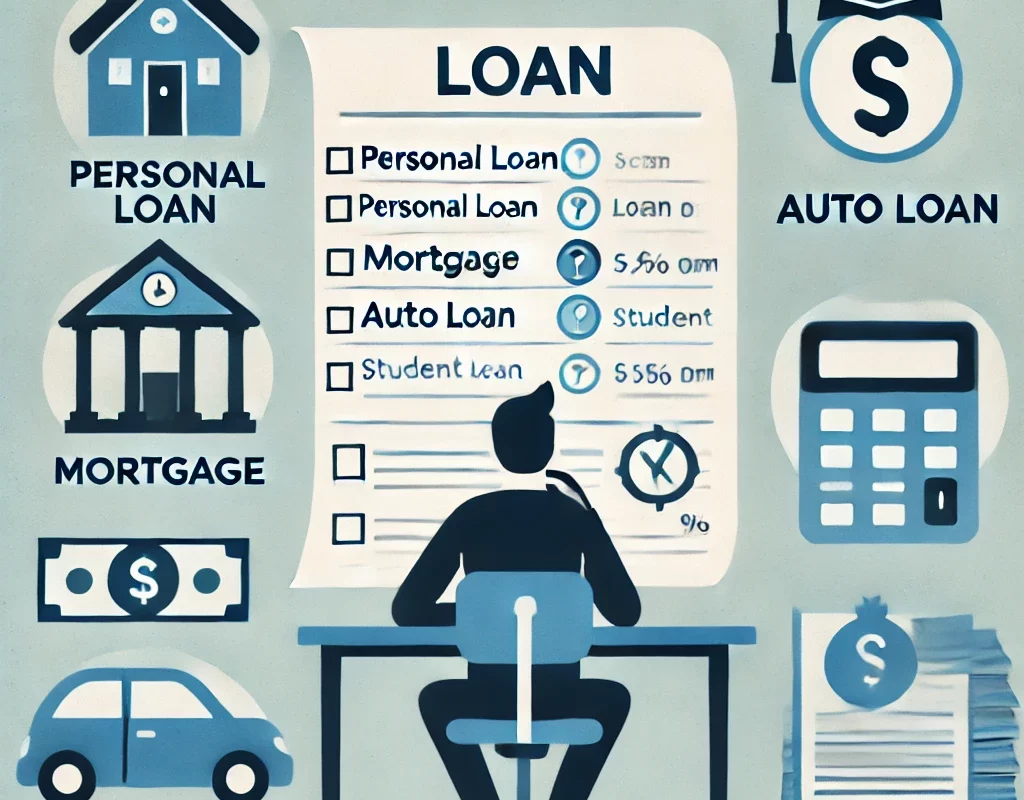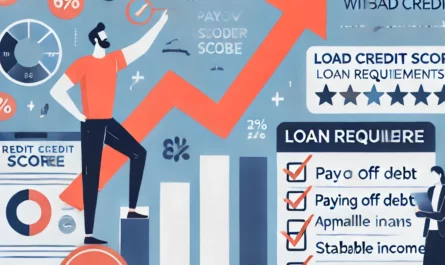Learn how to choose the right loan type for your financial needs. Get expert tips on selecting the best loan that fits your situation. When it comes to securing a loan, making the right choice is critical to ensuring that it aligns with your financial situation and goals. The loan market offers a wide range of options, each designed for specific purposes. Whether you’re buying a home, financing a car, covering educational expenses, or consolidating debt, choosing the right loan type can make a significant difference in your financial health.
Understanding Your Financial Needs for Right Loan Type
Before delving into the different loan types, it’s essential to assess your financial situation. What is the purpose of the loan? How much do you need? How long will it take you to repay it? These are all crucial questions that shape the loan decision. Your income, credit score, and existing debts will also play a significant role in determining which loans are available and ideal for you.
Secured vs. Unsecured Right Loan Type: Which is Right for You?
Loans generally fall into two categories: secured and unsecured.
- Secured loans require collateral, such as a house or car. These loans typically offer lower interest rates but come with the risk of losing the asset if you default.
- Unsecured loans don’t require any collateral and include personal loans, credit cards, and student loans. However, they often carry higher interest rates since they pose a greater risk to lenders.
Choosing between a secured or unsecured loan depends on your risk tolerance and the type of purchase or investment you’re making.
Right Loan Type Based on Specific Financial Needs
Understanding the various loan types available will help you make the best decision for your particular needs. Here’s a breakdown of common loans:
1. Personal Loans
Personal loans are flexible and can be used for various purposes, such as home improvements, medical bills, or debt consolidation. They are typically unsecured, meaning you don’t need to put up collateral.
- Who it’s best for: Individuals with a good credit score who need funds for non-specific or mixed financial goals.
- Considerations: Higher interest rates may apply, depending on your credit score. Personal loans are often limited in size, so they may not be ideal for large purchases like a home.
2. Mortgage Loans
A mortgage is a loan specifically for buying a home. Mortgages are secured loans, with the house itself serving as collateral. There are different types of mortgages, including fixed-rate and adjustable-rate loans, with varying terms and interest rates.
- Who it’s best for: Homebuyers looking for long-term financing.
- Considerations: Pay attention to the interest rate and loan terms. A fixed-rate mortgage offers consistent payments, while adjustable-rate mortgages can start low but fluctuate over time.
3. Auto Loans
Auto loans are secured loans used to finance the purchase of a car. These loans typically have shorter repayment periods than mortgages.
- Who it’s best for: Individuals buying a car who prefer manageable monthly payments.
- Considerations: As with mortgages, interest rates and terms can vary. Keep an eye out for special dealer financing offers, but be cautious of the terms and any hidden costs.
4. Student Loans
Student loans are designed to cover educational expenses, including tuition, books, and living costs. There are both federal and private student loans, each with its own set of terms and benefits.
- Who it’s best for: Students or parents needing to cover the costs of education.
- Considerations: Federal student loans often come with lower interest rates and flexible repayment options compared to private loans. Make sure to explore all available financial aid options before committing to a loan.
5. Debt Consolidation Loans
Debt consolidation loans are personal loans used to combine multiple debts into a single loan with a lower interest rate. This can simplify your payments and potentially save you money on interest.
- Who it’s best for: People with high-interest debts, such as credit card balances, looking to streamline their payments.
- Considerations: You need a strong credit score to qualify for the best rates. Consolidation is only effective if you can resist accumulating more debt in the future.
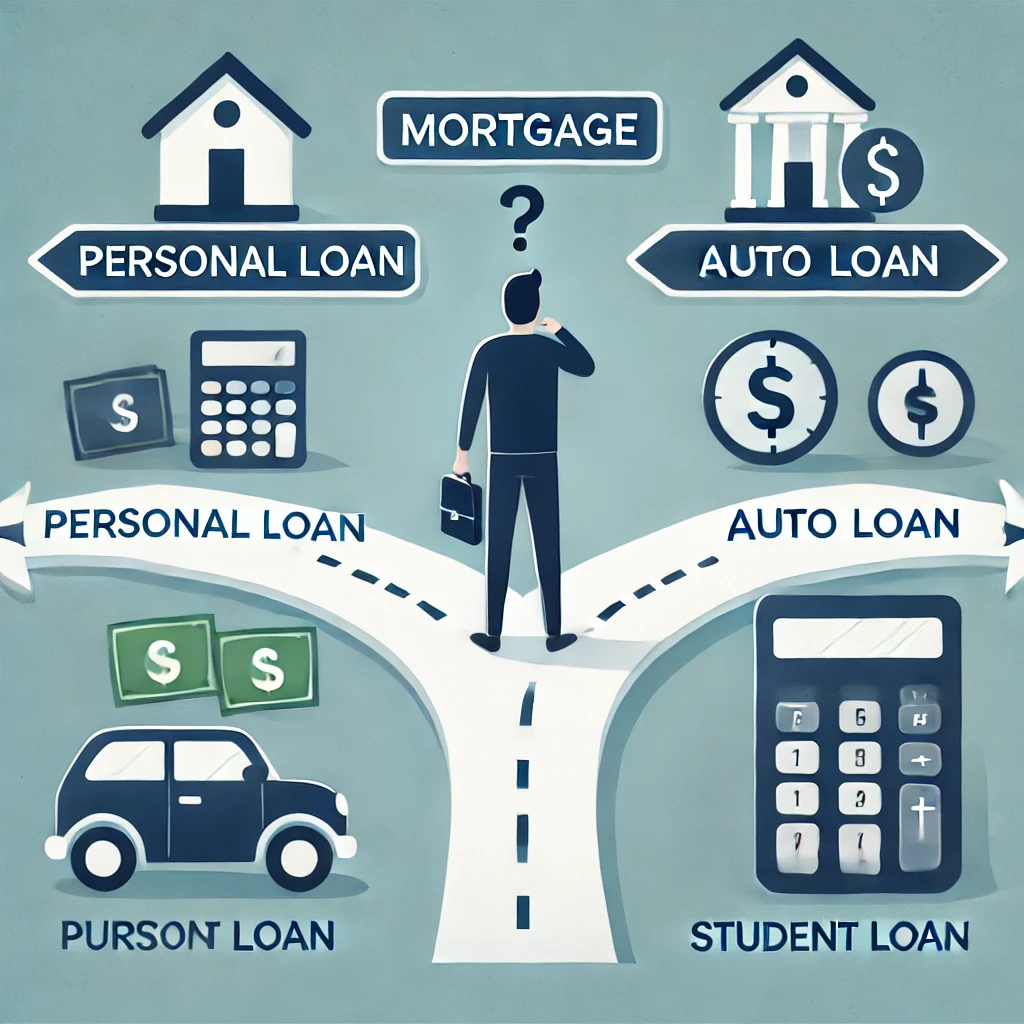
Loan Terms and Interest Rates: What to Look For Right Loan Type
No matter which loan type you choose, the terms of the loan will greatly impact its affordability. The key aspects to consider are:
- Interest Rate: Fixed or variable? A fixed interest rate stays the same over time, while a variable rate may fluctuate based on market conditions.
- Loan Term: The length of time you have to repay the loan. Shorter terms typically have higher monthly payments but lower total interest costs.
- Fees and Penalties: Some loans come with origination fees, prepayment penalties, or late payment charges. Be sure to read the fine print to avoid unexpected costs.
Assessing Your Credit Score in Right Loan Type
Your credit score is one of the most important factors when applying for a loan. A high credit score can unlock lower interest rates and better terms, while a lower score might limit your options.
- Improving Your Score Before Applying: If your credit score is less than ideal, consider improving it before taking out a loan. Paying off existing debt, correcting any errors on your credit report, and making on-time payments can boost your score.
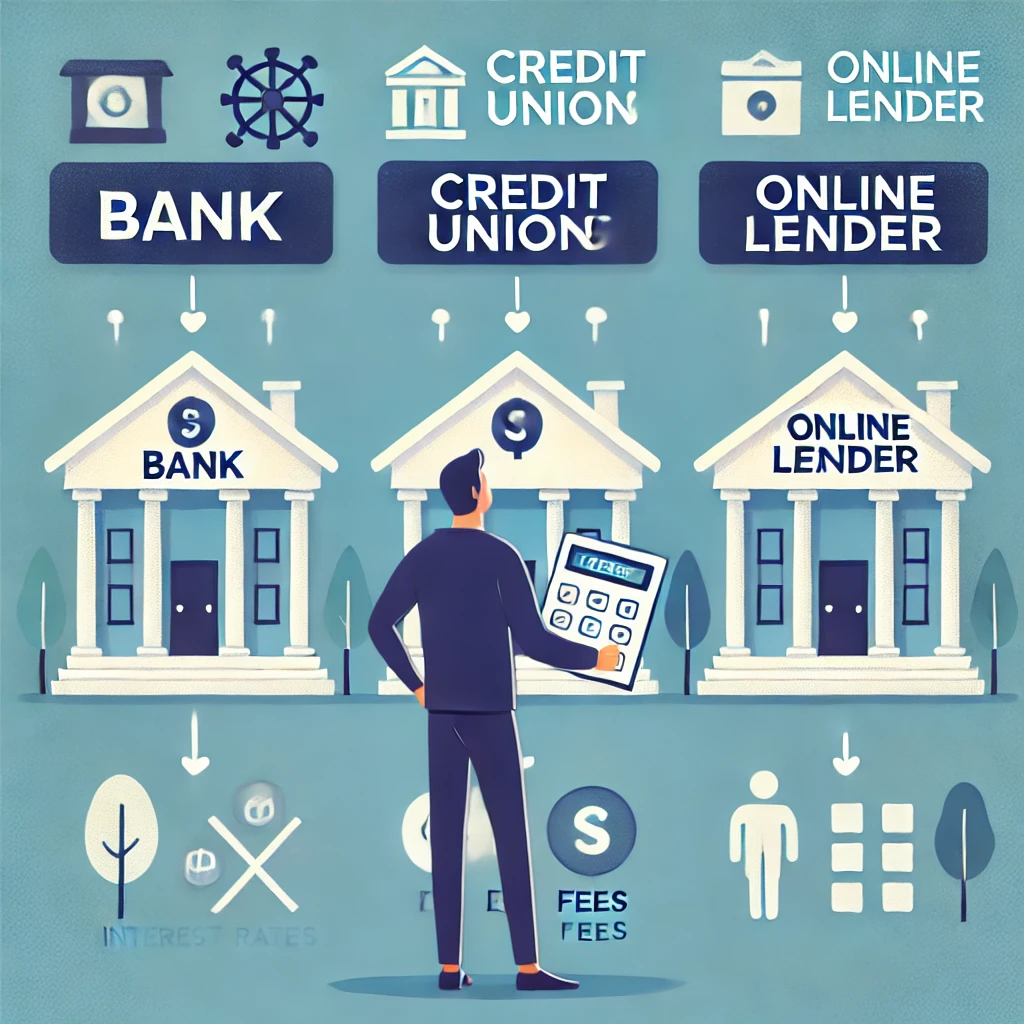
Choosing a Lender: Banks, Credit Unions, or Online Lenders?
Once you’ve determined the right type of loan for your financial needs, the next step is choosing a lender. You can borrow from traditional banks, credit unions, or online lenders, each offering different benefits.
- Banks: Often provide a wide range of loan products and in-person service. However, they may have stricter eligibility requirements.
- Credit Unions: Typically offer lower interest rates and more personalized service but may require membership.
- Online Lenders: Convenient and often have faster approval processes, but they may not offer the same level of customer support as traditional institutions.
How to Apply for the Right Loan Type
Once you’ve chosen your loan type and lender, it’s time to apply. Be prepared to provide documentation, including proof of income, credit history, and sometimes collateral (for secured loans). Ensure that you shop around for the best interest rates and loan terms before committing.
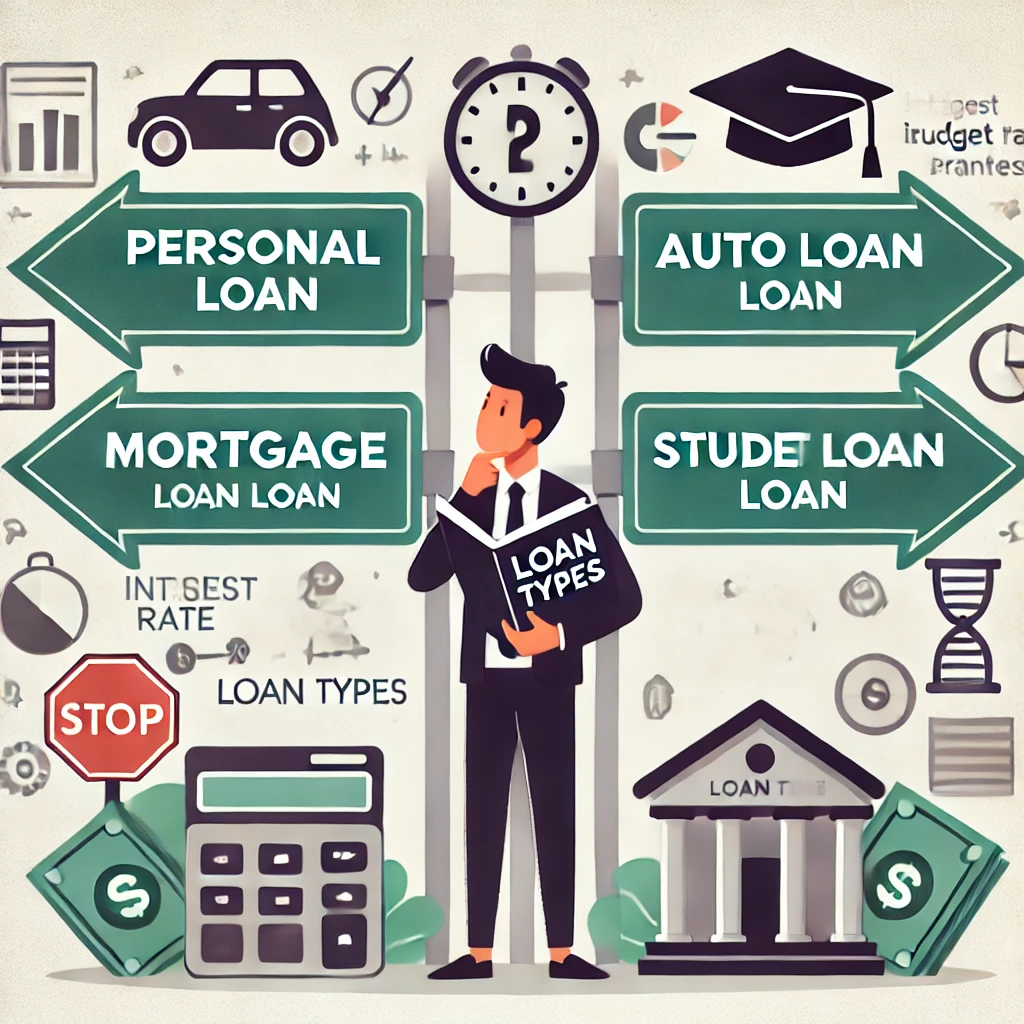
How to Choose the Right Loan Type for Your Financial Needs
Choosing the right loan type requires careful consideration of your financial situation, the purpose of the loan, and your ability to repay. By understanding the different loan options available—personal loans, mortgages, auto loans, student loans, and debt consolidation—you can make an informed decision that supports your financial goals. Be sure to assess your credit score, loan terms, and interest rates to secure the best deal.
You Can Also Read : How to Improve Your Chances of Getting a Loan with Bad Credit
FAQs
What is the difference between a secured and an unsecured loan?
Secured loans require collateral, such as a house or car, while unsecured loans do not. Secured loans often have lower interest rates but carry the risk of losing the collateral if you default.
How does my credit score affect my loan options?
Your credit score plays a significant role in determining your eligibility for loans and the interest rates you’ll receive. A higher score can result in better terms, while a lower score may limit your options.
Can I get a loan with a low credit score?
Yes, but your options may be limited to higher-interest loans, such as payday loans or bad credit personal loans. It’s advisable to improve your credit score before applying for major loans.
What is the best loan type for buying a car?
Auto loans are specifically designed for financing a car purchase. They are secured loans, meaning the car serves as collateral, which helps to keep interest rates relatively low.
Should I choose a fixed or variable interest rate?
A fixed interest rate offers predictable payments, while a variable rate can change over time. If you prefer stability, a fixed rate is the safer option. If you’re comfortable with potential fluctuations, a variable rate may offer a lower initial rate.
How can I improve my chances of getting approved for a loan?
To improve your chances, work on building a good credit score, reduce existing debt, and ensure that your income is sufficient to cover loan payments. Providing accurate documentation and demonstrating financial responsibility will also help.
